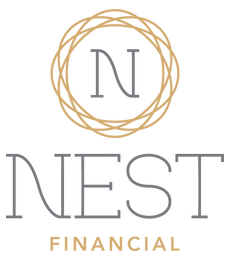
Introduction
Ah, taxes. We either love ’em or loathe ’em, but they are as sure as the sun rises. Wondering why we pay taxes, where they go, or even how to reduce your tax bill? Well, you’re in luck! Sit tight as we journey through the history and importance of taxes, and share some handy tips to help you steer through this sometimes baffling terrain.
A Brief Tax History: Ancient Obligation to Modern-Day Necessity
Understanding the historical context helps us appreciate how taxes have transformed from simple contributions in ancient civilizations to the intricate systems we have today. By learning from the past, we can navigate our modern tax obligations more effectively and contribute to the development of our societies.Since ancient times, taxes have been an integral part of human civilization.

Taxes in Ancient Egypt
In ancient Egypt, taxes played a crucial role in supporting the pharaoh’s government and maintaining public infrastructure. Contributions were levied on various commodities like grain and livestock. The funds collected helped finance projects such as irrigation systems, which were essential for agricultural prosperity.

Taxes in the Roman Empire
Moving to the Roman Empire, taxes served as a means to finance its vast territories. The Romans introduced innovative tax collection methods, including a census-based system that assessed citizens’ wealth and determined their liability accordingly. This approach enabled effective management of their sprawling empire.

Taxes in Ancient China
In ancient China, taxation was intricately woven into society. The Chinese dynasty implemented a land-based taxation system that required citizens to pay a portion of their agricultural produce as tribute to the ruling powers. This not only provided revenue but also ensured social stability by maintaining equitable distribution of resources.

Feudal Taxes in Medieval Europe
As civilizations progressed, tax systems adapted to different societal structures. In medieval Europe, feudal lords collected taxes from peasants in exchange for protection and land usage rights. The funds collected pay tax and were used for defense purposes and maintaining societal order.
Emergence of Income Tax
This concept emerged during the late 18th century as governments sought new ways to finance wars and fund public services. Initially introduced in Britain and later adopted by other nations, tax on income became a significant source of revenue for modern governments.
Federal Tax on income in the United States
In the United States, tax on income, was first established in 1861 during the Civil War as a temporary measure but eventually became permanent with the adoption of the Sixteenth Amendment in 1913. Over time, the U.S. federal tax and system has evolved into its present form, incorporating various provisions like deductions, credits, and progressive tax rates.
Evolution of the Modern Tax System
Today’s complex tax system serves multiple purposes beyond funding government services. It aims to promote economic growth through incentives like capital gains taxes benefits and encourages social equity through refundable tax credits such as the earned income credit. The modern tax system has evolved through centuries of historical development and societal changes.
Purposes of Today’s Complex Tax System
The intricate tax system we have today serves several purposes. It not only funds government services but also plays a role in promoting economic growth and ensuring social equity. Various provisions, such as deductions, credits, and progressive tax rates, are designed to incentivize certain behaviors and provide assistance to those in need.
Why Do isn’t everything tax free? Civilization Comes at a Cost
Our taxes help fund public services like healthcare, education, and infrastructure, keeping our society running smoothly. In addition, taxes play a crucial role in promoting economic fairness, aiding in wealth distribution and ensuring everyone chips in their fair share.
Understanding Tax Types and Navigating Tax Filing
There’s a whole variety of taxes, from your income taxes, capital gains, federal tax, sales tax on your purchases, to estate tax levied when transferring wealth after death. When it’s tax filing time, resources like tax preparation software, tax professionals, and the IRS’s online tools can be invaluable aids in navigating this intricate process.

How can I lower what I owe in taxes?
Lowering the amount owed in taxes is a common goal for many individuals. There are several strategies that can be employed to achieve this objective.
One tax savings method is to take advantage of eligible deductions. By carefully reviewing the available deductions and credits, taxpayers can reduce their taxable income. For example, claiming deductions for business expenses or medical costs can help lower the overall tax liability.
Another approach is to contribute to retirement, such as an Individual Retirement Account (IRA) or 401(k). Contributions made to these accounts are often tax-deductible, meaning they reduce the taxable income for that same tax year thereafter.

Furthermore, it may be beneficial to explore tax credits that apply directly to your situation. Tax credits are more advantageous than deductions as they directly reduce the total taxes owed rather than just lowering taxable income. Some common tax credits include those for education, medical expenses, or energy-efficient home improvements.
How to reduce tax bill if you are Self Employed
Additionally, if you are self-employed or a freelancer, consider exploring the possibility of forming a limited liability company (LLC) or S corporation. These business structures offer different tax benefits and could potentially lower your overall tax burden.
Business have a whole array of their own terms and things you want to be familiar with. You want to learn tax advantages, to Business expenses, home office deduction, retirement contributions as well as tax incentives. Beware also that there may be pitfalls, that may have you paying a huge tax bill, especially consider self employment tax and how that may affect you.
Lastly, consulting with a qualified tax professional can provide valuable insights and guidance on how to legally optimize your tax situation. They can help identify specific strategies and exemptions that may apply to your individual circumstances.
In summary, reducing what you owe in taxes involves careful planning and taking advantage of available tax deductions,, applicable tax credits, potential business structures, and seeking professional advice when needed.
How can I avoid paying taxes on high income?
To legally minimize taxes on high income, you can consider the following strategies:
Contribute to a retirement account: By making tax-deductible contributions with pretax dollars, you can lower your taxable income and potentially reduce your tax liability.
Be aware of payroll taxes: High-income earners may face additional payroll taxes. Understanding how these taxes work can help you plan and manage your finances.
Utilize student loan interest deductions: If you have qualifying student loans, deducting the interest paid can reduce your taxable income.
Make charitable contributions: Donating to qualified charities allows you to deduct those contributions from your taxable income, potentially lowering your tax liability.
Claim home office deductions: If you use part of your home exclusively for business purposes, you may be eligible for a deduction related to your home office expenses.
Take advantage of tax credits: Tax credits directly reduce the amount of tax owed. Examples include the American Opportunity Tax Credit for educational expenses or other applicable credits that may apply to your situation.
Understand estimated tax payments: High-income earners often need to make quarterly estimated tax payments to avoid penalties come tax time. Familiarize yourself with these requirements and plan accordingly.
Consider self-employment taxes: If you’re self-employed, be aware of the additional taxes that may apply. Understanding how self-employment taxes work will help you estimate and manage your overall tax burden effectively.
Remember, it’s essential to consult a qualified tax professional or financial advisor who can provide personalized guidance based on your specific circumstances.

Common FAQs About Taxes
Q: How can I reduce my tax bill?
A: Claim deductions and credits, contribute to tax-advantaged retirement accounts, and time your income and expenses strategically. Consult with a tax professional to discover the best strategies tailored for you.
Q: What happens if I don’t pay my taxes or file late?
A: Not paying or late filing tax return can lead to penalties, interest, or even legal action. The IRS offers payment plans if you can’t pay your tax bill in full.
Q: Can I claim my spouse or children as dependents?
A: You can generally claim your spouse and children as dependents if they meet certain criteria, reducing your taxable income and possibly increasing your eligibility for tax credits.
Q: Are my taxes used to fund things I don’t support?
A: Taxes fund a variety of government services and programs. Though you may not agree with all expenditures, they are essential for maintaining the services and infrastructure we all rely on.

Recap on tax savings either on income taxes or on taxable income
Taxes have been around since ancient times, serving various purposes and evolving over the years. In ancient Egypt, taxes supported the pharaoh’s government and infrastructure projects. The Romans introduced a census-based tax system in their empire for effective management. Ancient China used a land-based taxation system to maintain social stability.
Medieval Europe saw feudal lords collecting taxes for defense and order. Income tax emerged in the late 18th century to fund public services during wars. In the United States, income tax became permanent in 1913 with the Sixteenth Amendment. Today’s complex tax system funds government services, promotes economic growth, and ensures social equity through provisions like deductions, credits, and progressive tax rates.
We pay taxes to fund public services like healthcare and education while promoting economic fairness. Understanding different types of taxes is important when navigating the filing process.
Strategies to lower your tax bill include utilizing deductions, contributing to retirement accounts, exploring applicable credits, forming business structures if self-employed, and consulting professionals for personalized guidance.
Minimizing taxes on high income can be achieved by contributing to a retirement account, being aware of payroll taxes, using student loan interest deductions, making charitable contributions, claiming home office deductions, taking advantage of tax credits, understanding estimated tax payments if self-employed, and consulting experts.
By staying informed about taxes and seeking professional advice when needed, you can navigate this complex terrain with confidence.
Conclusion
While taxes may feel like a necessary evil, understanding their history, purpose, and ins and outs can help ease the burden. By staying informed and seeking professional advice, you can navigate the tax world with confidence and perhaps even reduce your tax bill.
Remember, it takes money to make the world go ’round, and your contribution helps keep our society running. Happy tax filing!
—






[…] Reducing your tax bill can seem daunting, but with the right strategies, it’s achievable. From understanding your tax liability and leveraging retirement contributions to maximizing tax credits and utilizing professional help, there are many ways to reduce your tax bill: […]
[…] A Whirlwind Tour of Taxes: How to Navigate and Reduce Your Tax Bill […]
[…] you’re like the other 19 million Americans who missed the April tax deadline, then it is time for you to file a tax extension to avoid further stress and penalties. Filing a […]
[…] A Whirlwind Tour of Taxes: How to Navigate and Reduce Your Tax Bill […]